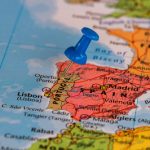NSW Police Claim Victory in the War on Drugs

Eighteen men aged between 19 and 39 are appearing in courts across Sydney’s West and South-West today after being arrested in coordinated police raids.
Police have described the men as ‘low to mid ranking’ members of a dial-a-dealer drug network associated with “the Alameddine crime syndicate”.
The charges
Police attached to Strike Force Sugarcane, which has been on foot for a year, executed 29 search warrants overnight and charged the men with a range of offences relating to the supply of prohibited drugs and the unauthorised possession or use of firearms.
A spokesperson for the New South Wales Police Force says several firearms, a range of prohibited drugs including cocaine, MDMA, cannabis and prescription medication, as well as 36 encrypted mobile phones, cash, jewellery and firearms were seized during the raids.
Several of the men are expected to face charges of participating in a criminal group.
Police also claim that a number of the men are suspected of involvement in at least one offence of murder, although no such charges have yet been laid as yet.
The details of the murder suspicions are sketchy at present, but police have reported that information obtained as part of the investigation and raids will be passed on to the homicide squad.
‘Cutting the head off the snake’
Police are boasting that they have crushed the heart of the so called “Alameddine crime syndicate”.
They also claim the arrests will put an end to violent feuds that have erupted in recent months over drug markets across the state.
A least a dozen assassination-type killings have been attributed to the ‘underworld gangland war’ since late 2020, including three in the four weeks.
New task force
Police have been under increasing pressure to curb the violence across Sydney streets and a new taskforce, Erebusm was announced just last week with a view to targeting organised crime.
Since its launch, police have arrested several members and associates of motorcycle clubs, including the Comancheros, Finks and Rebels.
Violent crime associated with drug prohibition
And while police are celebrating what they’re calling ‘cutting the head off the snake’, there are concerns that the ‘tough on crime’ approach is missing the bigger picture and could prove to be counter-productive in terms of reducing crime – given the continuing ‘war on drugs’ is enabling to black market drug trade and all the violence that goes with it to persist, and indeed grow.
Professor Dan Howard, who led a special inquiry into crystal methamphetamine, also known as “ice”, handed his final report to the state government in early 2020. The inquiry was commissioned by former Premier Gladys Berejiklian.
However, almost two years later, despite initially saying that it would not introduce pill testing or abolish the use of drug dogs, which were recommended, the Government has yet to fully respond to all of the recommendations.
The most significant and groundbreaking of these was a recommendation to overhaul the drug laws in New South Wales, and increase the focus on rehabilitation for drug users.
Many countries that have taken the brave step of decriminalising drug use and treating it as a health issue rather than a criminal justice issue have not looked back. The results have, in many cases, ‘cleaned up the streets.’ Portugal is an outstanding example.
Decriminalising drug use has proven to be successful
More than 20 years ago, Portugal decriminalised the personal possession of all drugs as part of a wider change in policy towards a health-led approach.
Possessing drugs for personal use is instead treated as an administrative offence, meaning it is no longer punishable by imprisonment and does not result in a criminal record and associated stigma.
The results speak for themselves. Levels of drug use in Portugal have been consistently below the European average over the past twenty years.
This is particularly the case among younger people: Portugal has some of the lowest usage rates in Europe among those between the ages of 15-34. Death rates associated with drug use have also declined, and the move away from criminalising people and imprisoning them for drug use has changed the prison population and taken the pressure off the criminal justice system. It has also meant that more addicts are seeking help, without the fear of getting a criminal conviction.
Habitual drug use is a health issue, not a criminal law one
It’s not the first time that governments across Australia have been encouraged to take a different approach to the country’s drug problem – it’s a conversation that has bubbled up from time to time, but to date, those in positions of leadership insist that the ‘tough on drugs’ approach is a huge success.
Certainly, breaking up a significant drug dealer network is a very positive step forward, because criminal behaviour should be punished. But there is also merit in balancing police strategies with a committed focus on addressing addiction.
Addressing habitual drug use affects the demand for drugs, which then impacts supply, but more than that, it really gives people a chance to become productive members of society, rather than spend their lives dependent on social welfare because they’re caught in a cycle of addiction, poverty, possibly criminal behaviour and poor health.
There are also very real concerns raised by mental health experts that rates of substance abuse and addiction are on the rise. In the wake of the Covid-19 pandemic, more people are turning to mental health support workers to deal with depression, anxiety and other disorders which suggests that the problem could get much much worse.
Receive all of our articles weekly
Related Articles
RELATED LEGISLATION
- Section 10 Drug Misuse and Trafficking Act 1985 | Drug Possession
- Section 7 Firearms Act 1996 | Offence of Unauthorised Possession or Use of Pistols or Prohibited Firearms
- Section 7A Firearms Act 1996 | Offence of Unauthorised Possession or Use of Firearms Generally
- Section 93S Crimes Act 1900 | Definitions Relating to Criminal Groups
- Section 93T Crimes Act 1900 | Participate in Criminal Group







